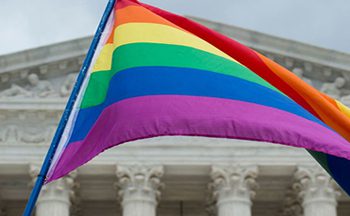The United States Supreme Court Holds Title VII of the Civil Rights Act Protects Gay and Transgender Workers
June 22, 2020
Last week, in Bostock v. Clayton County, Georgia, the Supreme Court held that an employer who terminates an individual for being gay or transgender violates Title VII of the 1964 Civil Rights Act. Justice Gorsuch authored the landmark decision on behalf of the Court’s 6-3 majority.
Title VII of the Civil Rights Act makes it “unlawful” for “an employer to fail or refuse to hire or to discharge any individual, or otherwise to discriminate against any individual . . . because of such individual’s race, color, religion, sex, or national origin.” The Court held that when “an employer fires an employee for being homosexual or transgender, it necessarily and intentionally discriminates against that individual in part because of sex.”
The Court provided several examples to support its conclusion. For instance, if an employer announces it will not employ anyone who is gay, that employer “intends to penalize male employees for being attracted to men and female employees for being attracted to women.” Similarly, if an employer requires a job applicant to check whether they are gay or transgender on a box, there is no way for the applicant to do so without considering sex.
In other words, because discrimination based on sexual orientation and gender identity will always depend on the employee’s sex, such discrimination is prohibited under Title VII. Gay and transgender workers in California are therefore now protected under both federal and state law, as California’s Fair Employment and Housing Act also expressly protects sexual orientation, gender expression, and gender identity.

